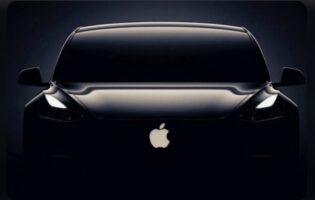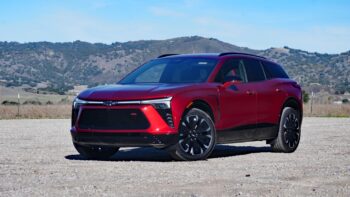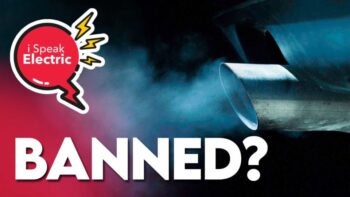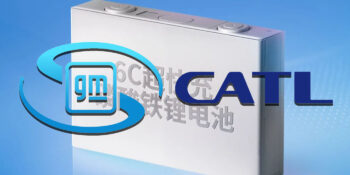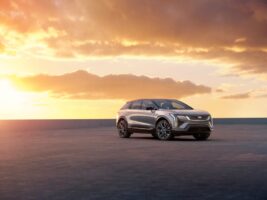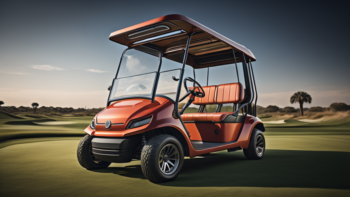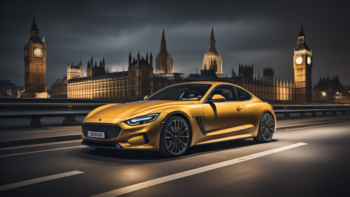ZF Presents: ‘Electric 2-Speed Drive’ for Passenger Cars
Paradigm Shift for Electromobility: ZF Presents New Electric 2-Speed Drive for Passenger Cars
- World premiere: first 2-speed e-drive from ZF
- Integrated system improves energy conversion efficiency and extends range
- Modular approach: drive concept can be scaled up for use in performance vehicles
Friedrichshafen. ZF shifts up a gear: its new 2-speed electric drive for passenger cars integrates an advanced electric motor with a shift element and appropriate power electronics. The improvement in energy conversion efficiency compared to previous e-drives extends the driving range for each battery charge. And its compact design also makes this new drive system of interest for passenger cars in the compact class. The modular design of this unit can also be fine-tuned and scaled up for use in sports and performance vehicles.
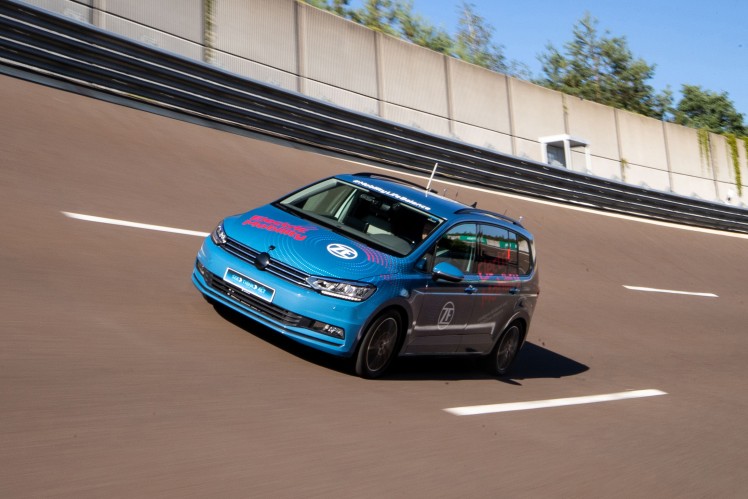
With its new electric 2-speed drive solution, ZF is introducing the next stage of electromobility to the passenger car segment. “For electric vehicles in everyday use, it is important to obtain as much range as possible from each battery charge”, states Bert Hellwig, Head of System House at ZF’s E-Mobility division. “Every percent of improvement in energy conversion efficiency translates into two percent more range.” To increase the performance rating of the new electric axle drive system, ZF leveraged its expertise in systems to develop a new electric motor with a maximum power rating of 140 kW paired with a two-stage shift element. “Bringing together our know-how in relation to electric motors, gearboxes, and power electronics ensures that we achieve the best possible range from each battery charge”, states Hellwig.
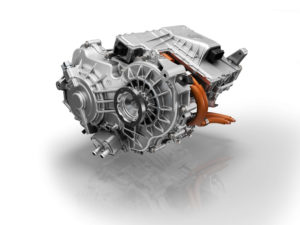 Vehicles with the new 2-speed drive consume less energy, which in turn extends range by up to five percent when compared to a one-speed unit. Shifts take place at 70 km/h. By connecting to the vehicle’s CAN communication it is also possible – if the customer so wishes – to devise other shift strategies, possibly linked to digital map material and GPS. For example, the vehicle could identify from the GPS route programming how far it is to the next charging station, enabling it to respond predictively by switching into Eco-mode. More effective shifts would also be possible in accounting for topography on the interstate, and on inter-city journeys. The software in the drive can also be updated thanks to the network link to Cloud services via over-the-air updates.
Vehicles with the new 2-speed drive consume less energy, which in turn extends range by up to five percent when compared to a one-speed unit. Shifts take place at 70 km/h. By connecting to the vehicle’s CAN communication it is also possible – if the customer so wishes – to devise other shift strategies, possibly linked to digital map material and GPS. For example, the vehicle could identify from the GPS route programming how far it is to the next charging station, enabling it to respond predictively by switching into Eco-mode. More effective shifts would also be possible in accounting for topography on the interstate, and on inter-city journeys. The software in the drive can also be updated thanks to the network link to Cloud services via over-the-air updates.
For vehicle manufacturers, the new 2-speed drive offers two options for using improved energy conversion efficiency. The Original Equipment Manufacturer (OEM) could either go for an extended range while retaining the same size of accumulator, or utilize a smaller accumulator.
Modular approach: bests result for efficiency or performance
Thanks to the design of this unit that optimizes installation space, the 2-speed system is suitable for compact passenger cars where interior space is at a premium.
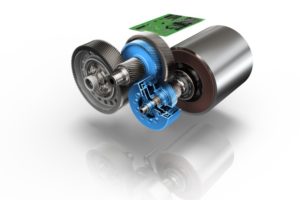 The 2-speed concept offers benefits for OEMs who are pursuing performance. “Until now, with electric motors, vehicle manufacturers have had to choose between high initial torque and a high top speed”, explains Hellwig. “We are now resolving this conflict and the new drive will be compatible for performance and heavier vehicles – for example for passenger cars towing a trailer.” ZF’s modular approach combines the 2-speed gearbox with even more powerful electric motors rated for up to 250 kW. This delivers enhanced acceleration and, potentially, faster top speeds. With its modular concept, the new drive can meet a variety of requirements.
The 2-speed concept offers benefits for OEMs who are pursuing performance. “Until now, with electric motors, vehicle manufacturers have had to choose between high initial torque and a high top speed”, explains Hellwig. “We are now resolving this conflict and the new drive will be compatible for performance and heavier vehicles – for example for passenger cars towing a trailer.” ZF’s modular approach combines the 2-speed gearbox with even more powerful electric motors rated for up to 250 kW. This delivers enhanced acceleration and, potentially, faster top speeds. With its modular concept, the new drive can meet a variety of requirements.
Source Text & Images : ZF
EV-News
EV-Companies
EMR – United Kingdom
United Kingdom
Anaphite – United Kingdom
United Kingdom
